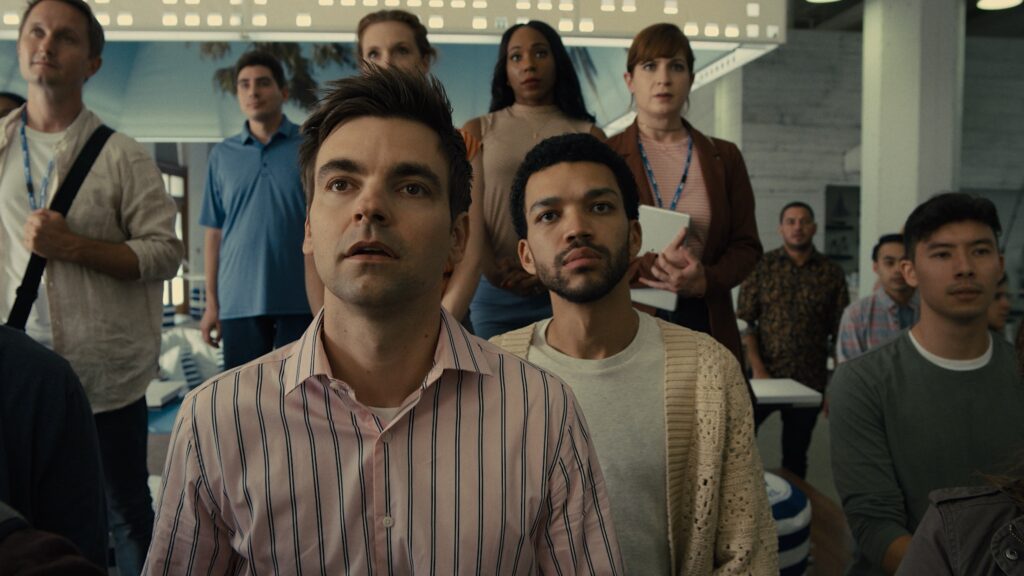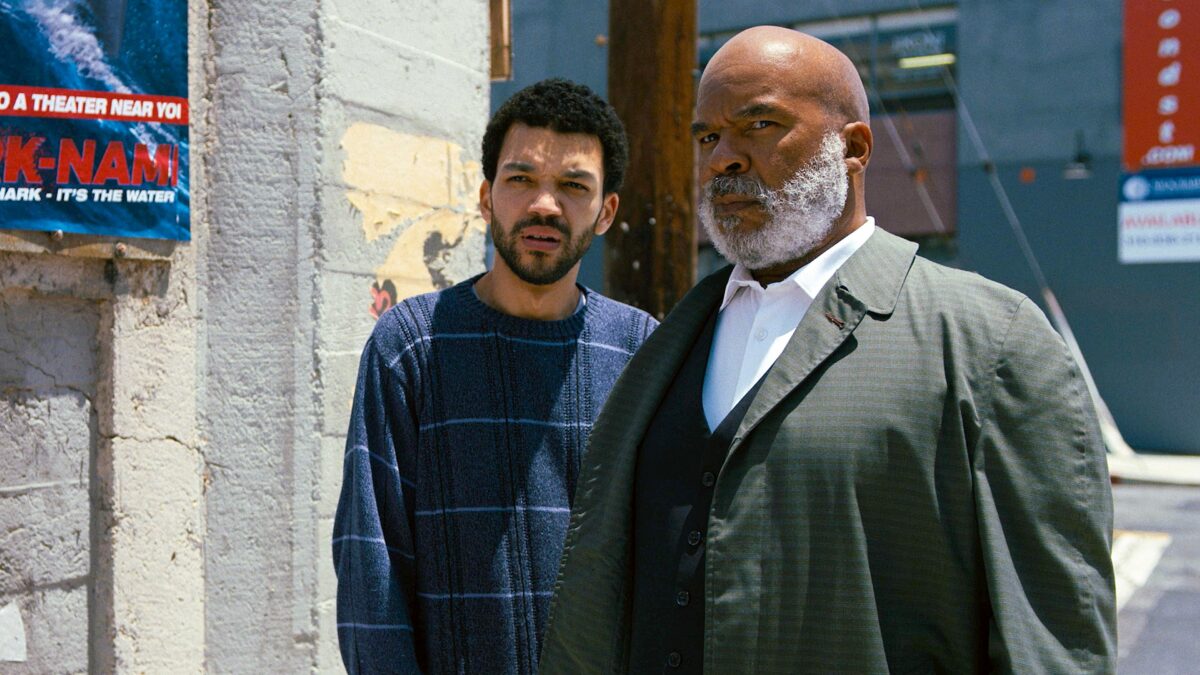Super is the new Black
Plenty of times in my movie-watching life, my first reaction to a film has been that it’s like watching two movies tussling for control. But with The American Society of Magical Negroes, I’m convinced that debut writer-director Kobi Libii actually had two half-baked ideas for movies and merged them into one. They just make so little sense together.
The first idea of The American Society for Magical Negroes is the one the film is titled for: A light fantasy-comedy racial satire. I can’t really blame Lobii for struggling to get this idea to feature length: it has a premise that’s approximately deep enough for a five-minute SNL skit. (And, for that matter, not an especially good one.)
Aren (Justice Smith) is recruited into a team of Black superheroes who powers are… that they help white people feel better about themselves so that they don’t commit hate crimes. The title comes from the familiar trope (as documented here on TV Tropes) which describes a character of color, often acting in ways befitting tired stereotypes, whose main narrative role is to support the white protagonist.

To the extent that any part of this movie is actively bad, rather than passively forgettable, it would be portions of this plot thread in the later stretch of the film. After a mildly amusing opening, Libii reveals has no idea what to do with this concept, unsure whether to make the titular society a superhero parody, a wonky alternate-history conspiracy spoof, or a straight-up situational comedy. The end result is perhaps the least biting of the recent spate of satires about Black people reckoning with their role in white-dominated America across various genres, e.g. Get Out, American Fiction, The Blackening. There’s very little deconstruction or rejection of the trope, just an acknowledgment it exists. This thread climaxes with a monologue so on-the-nose about its themes that it would make America Ferrera’s character in Barbie blush.
The second movie idea that The American Society for Magical Negroes is built around is a workplace romantic comedy about a Black artist and an ambitious young woman both reckoning with identities as “diverse” employees in a Silicon Valley-type company. This version of the movie is not just pleasantly watchable, it’s occasionally even good. Had Libii just ditched the fantasy story and embraced reality, he probably could have made a solid, if fairly formulaic, romcom.
In this thread, Aren hits it off with Lizzie (An-Li Bogan), and the pair try to figure out how their complicated work situations impact their potential romance, especially as the obnoxious tech-bro Jason (Drew Tarver) ropes them into a project that inadvertently forces them to compete with each other while Jason takes all the credit.

This part of the movie is pitched exactly at my tenor: Smith and Bogan have lights-out chemistry, the former in a remarkably understated lead performance that I found very endearing. Gawky, naturalistic, uncinematic male leads in romcoms are my favorite. Bogan is extremely charming, too. The writing is rarely too contrived, and has just enough brains and generosity to feel a step above your typical streaming or TV movie content mill fodder.
Alas, it is only half of the movie and thus a bit underdeveloped. And it works actively against the other half, which leads, once more, to my supposition that Libii had two movies he wanted to make and duct-taped two scripts together. I never really found The American Society of Magical Negroes unpleasant, but I am baffled and disappointed by its incoherent vision.
Is It Good?
Nearly Good (4/8)
Dan is the founder and head critic of The Goods. Follow Dan on Letterboxd. Join the Discord for updates and discussion.

